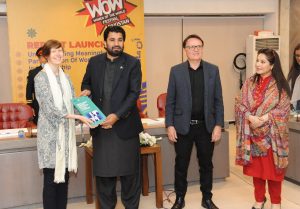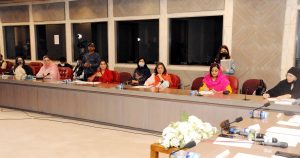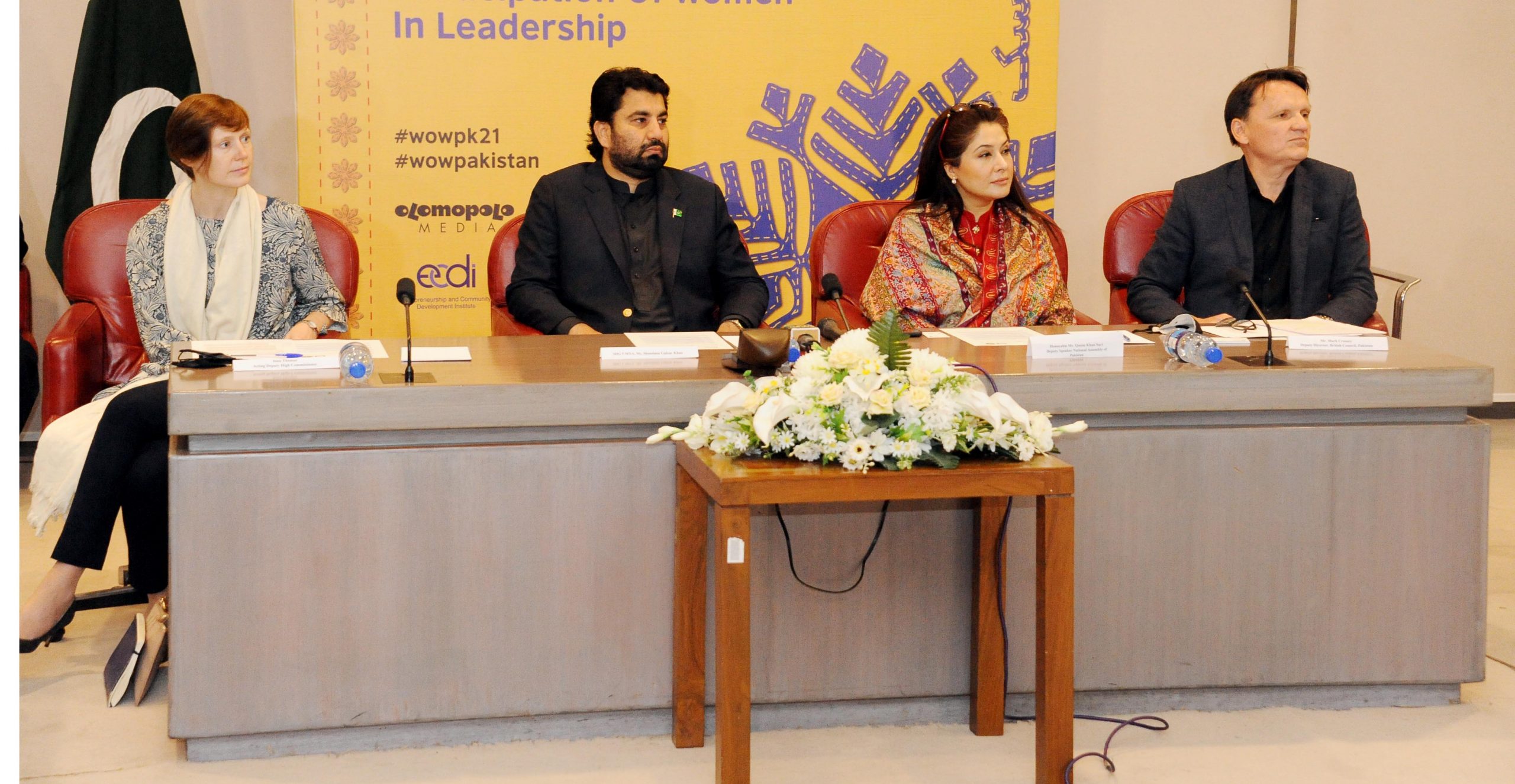Islamabad 8th March 2021: The Sustainable Development Goals (SDG) Secretariat of the National Assembly of Pakistan and the British Council launched the “Meaningful Participation of Women in Leadership in Pakistan” research report developed by British Council and its research partner Carnelian, as a part of the International Women’s Day 2021 celebrations today.
The event was attended by Hon. Mr. Qasim Khan Suri, Deputy Speaker National Assembly of Pakistan as Chief Guest who said “Enabling Women to avoid early marriages and promising them basic human rights, protecting them, and acquiring the education and skills they need to realize their potential, is a key priority toward 2030 and also a priority in Covid-19 crisis. Sometimes we forget that these are essential elements to be taken forward in crisis situations. Gender equality and empowering all women and girls is something that we seek to advance and if we fail acknowledge its importance, a generation will be lost and with it, our hope for sustainable development, prosperity, peace and security.”
The “Meaningful Participation of Women in Leadership in Pakistan” research investigates the social and economic implications of meaningful participation – or lack thereof – of women in leadership roles in various sectors across Pakistan. In addition to providing insight into why meaningful female leadership as opposed to perfunctory or “tokenistic” leadership is critical to the social development and economic growth, especially for emerging economies like Pakistan, this research also sheds light on the different approaches that can assist in fostering stronger female leadership across the board and throughout their careers.
Mark Crossey Deputy Country Director British Council thanked the National Parliamentary SDGs Taskforce and SDGs Secretariat team on hosting a successful event, He further said, “The 2030 Agenda for Sustainable Development provided us with 17 development goals, but also SDG 5, which is about “Achieving gender equality and empowering all women and girls”, in all circumstances. This is a big win and a commitment of the international community and we must all work to achieve each of its targets by all means.”
The event was also attended by a number of SDG Taskforce Member and Chairs who participated in an engaging roundtable discussion. During the conversation Acting Deputy High Commissioner of the British High Commission Iona Thomas said “Education plays an important role in the protection of women’s rights. It also helps to prevent discrimination based on gender. Education increases productivity in their work. An educated woman has skills, information, talent and self-confidence that make her a better mother, employee, and resident of the country. Women constitute almost half of our population. Thus, they need equal opportunities to contribute to the development of the country.”
Hon. Ms. Shandana Gulzar Khan, MNA, Sub-Group Convener on SDG 5 (Gender Equality) Chairperson Commonwealth Women Parliamentarians the convener of the event as a signatory of the research report said “Pakistan has a number of female role models from Fatima Jinnah – one of the leading founders of Pakistan, to the Muslim world’s first female Prime Minister Sh. Benazir Bhutto, Speaker of the National Assembly Dr. Fehmida Mirza, as well as phenomenal women like Samina Khayal Baig, the first Pakistani woman to climb Everest and the Seven Summits and Sharmeen Obaid Chinoy the first ever Pakistani Oscar winner to name a few. With the right interventions at the right time, we can aim to add many more to the list.”
This report showcases the many ways in which women are challenged across various sectors in Pakistan, and how one can mitigate these risks for themselves and women around them. Through a gender focused approach in all sectors; this study gathers the experiences, perceptions and practices of more than 600 men and women hailing from all over Pakistan – with varying social and economic backgrounds. The data recommends reducing caregiver burden, facilitating women at work, building the capacity of aspiring young women and showing unconditional support to your female family members or colleagues.







